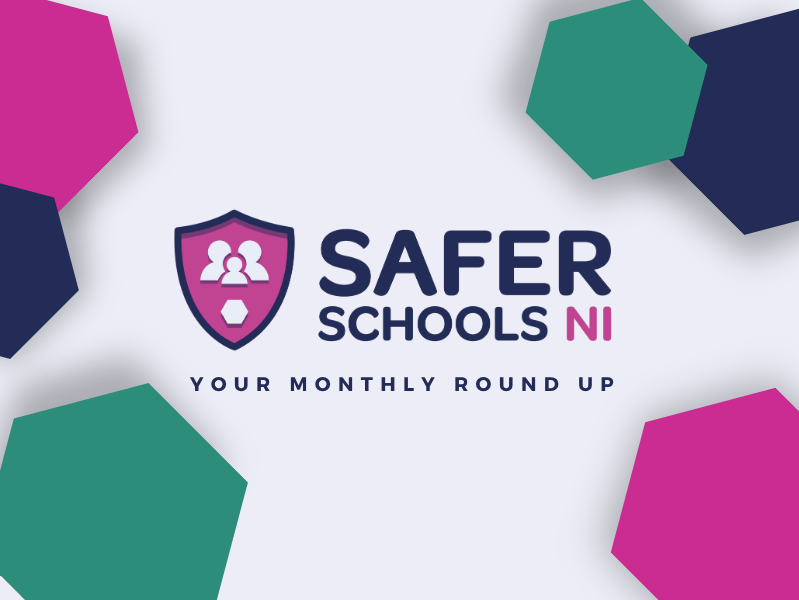Last Updated on 9th September 2022
Read the script below
Hello and welcome back to another Safeguarding Soundbites, with me Colin Stitt, Head of Safer Schools at INEQE Safeguarding Group. This is your weekly round-up of all this week’s safeguarding news, plus a summary of our safeguarding expert’s latest advice and guidance on keeping the children and young people in your care safer online.
We start this week with some sad news that another young person has died after taking part in the online ‘black out’ challenge made popular on TikTok. Now, we’ve released guidance for parents, guardians, and teachers on what online challenges are and how to talk to the children and young people in your care about them and much more. Find that on our website at saferschoolsni.co.uk or in your Safer Schools NI App.
Every year on the 10th of September, people and organisations around the world mark Suicide Prevention Day to bring awareness, understanding and support. Research shows that one in four young people will experience thoughts of suicide and that it is one of the leading causes of death in children and young people in the U.K. Knowing how to talk to a young person about suicide can be tough. To get a better understanding and find out how you can talk to young people about this subject, please visit our website or in your Safer Schools App.
Also, the charity CyberSafeKids has found there are rising levels of unrestricted access to smart phones, going online and social media for children under the age of 12. 95% of 8 to 12 year olds own their own smart device and 87% had their own social media accounts, despite many apps imposing higher age restrictions.
On the one year anniversary of the introduction of the Age Appropriate Design Code, the Information Commissioner has said that children are now safer online than a year ago, due to the implementation of the code. He noted that the code has led to a change in behaviour from tech giants, including policies around the ad targeting of younger users and video autoplay settings. You can learn more about the code by searching our website for ‘age-appropriate design code’.
The Financial Ombudsman Service has warned of cryptocurrency scams after receiving a growing number of complaints around fake investments. The scams tend to involve someone being persuaded to buy cryptocurrency through legitimate means, then being asked to send it on to the scammers.
Pupils in East Belfast are facing transportation issues due to capacity problems with school bus services from Translink. The affected schools had previously had an arrangement with a private transportation company that has now come to an end, resulting in many school students without a way to get to school on time. School transport issues are also affecting almost 300 children in NI who rely on education authority-provided taxis. The shortage of taxi drivers and late notice for transport have been blamed for the error affecting pupils, many of whom have special educational needs.
And finally, it seems dreams do come true as Twitter users might finally be getting an edit button for Tweets! Although still in the live testing phase, the change would allow users to edit their Tweets up to 30 minutes after posting, with edited Tweets being marked with icons, timestamps and labels so other users know it has been edited.
That’s all from me. I’ll be back next week with more safeguarding news and advice, until then, you can keep up to date via our socials – just search for Safer Schools NI – and on our website at saferschoolsni.co.uk.
Stay safe, thanks for listening and if you enjoyed today’s episode, we’d love for you to share Safeguarding Soundbites with your friends, family and colleagues.
Join our Safeguarding Hub Newsletter Network
Members of our network receive weekly updates on the trends, risks and threats to children and young people online.
Who are your Trusted Adults?
The Trusted Adult video explains who young people might speak to and includes examples of trusted adults, charities and organisations.
Pause, Think and Plan
Use our video for guidance and advice around constructing conversations about the online world with the children in your care.







